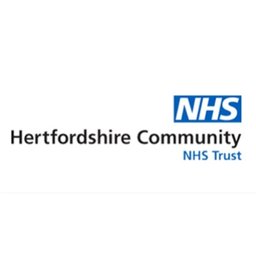Job Opportunities in United Kingdom

October 14, 2024
Hertfordshire Community NHS Trust
Stevenage
PART TIME
End of Life Coordinator
This is an exciting new post to scope how end of life care is- coordinated via the Integrated Care Coordination Centre
You can apply to Access to Work to get money for communication support at a job interview - please use this link for more information: https://www.gov.uk/guidance/apply-for-communication-support-at-a-job-interview-if-you-have-a-disability-or-health-condition-access-to-work
You need to apply before the interview takes place.
- Assess gaps/overlaps with current triaging of EOL referrals into the Care Co-Ordination Hub.
- Operate as a specialist practitioner with extensive knowledge of caring for patients with advanced, progressive, life-threatening disease.
- Scope how sustainable changes can be made to improve co-ordination of EOL care e.g. work with Ambulance staff to reduce conveyance.
- Outline with Service Leads where pathways can be developed to create sustainable cost-effective improvements.
- Embed the latest version of the Anticipatory Medicines and Syringe Pump Chart changes into the Integrated Care Co-ordination Centre
- Act as a resource of clinical knowledge and expertise as part of the extended Specialist Palliative Care Team for patients, their carers, health care professionals and other agencies.
- Communicate and collaborate with all stakeholders within the ICS, building effective relationships across professional organizational boundaries, using influencing, and negotiating skills to break down barriers and manage the patient journey.
- Work towards a Single Point of Access for palliative and end of life care co-ordination.
You can apply to Access to Work to get money for communication support at a job interview - please use this link for more information: https://www.gov.uk/guidance/apply-for-communication-support-at-a-job-interview-if-you-have-a-disability-or-health-condition-access-to-work
You need to apply before the interview takes place.
- To map current working patterns for triaging and the management of palliative and end of life referrals, identifying what works well and key areas for improvement.
- To work with EEast to reduce unnecessary conveyance to hospital by improving co-ordination of appropriate community services in line with ICB targets.
- To offer specialist advice, leadership, and education to the Care Co-ordination staff including supporting the GPs to understand the changes to the updated version of the Anticipatory Medicines and syringe Driver chart.
- To be appraised of a range of community pathways including but not limited to hospital at home, community nursing and therapy services, local hospices, specialist services and 2hr urgent care response.
- Where necessary, to respond to calls from patients, carers, and health care professionals so they can be triaged then signposted to the appropriate service/help required.
- Integrate care across all care settings, preventing duplication, fragmentation, and delay.
- Work independently as well as collaboratively with clinicians and admin personnel in the Care Co-ordination Centre to continue to develop the service.
- Be able to priorities and advise on priorities of dealing with competing workloads.
- Lead and participate on the development of service improvement for patients on an end of life pathway to assure safe and effective patient care and a positive patient experience.
- Support any new developments initiated by the service leads and encourage, enable and support others during times of change, working to overcome problems and tensions as they arise.
- Actively review role and responsibilities, altering practice, sharing achievements, and challenging tradition when required.
- Contribute to and participate in the review and development of policies, procedures and strategies.
- Develop and maintain professional relationships with acute hospitals, hospices, GPs, community nursing services and other health and social care professionals.
- Support admin staff so they respond appropriately to sensitive and difficult conversations.
- Actively participate in multi-agency working parties to develop care pathways which provide effective service delivery across all health, social and voluntary agencies.
- Keep accurate, contemporaneous records that ensure safety and evidence continuity of patient care in a manner that reflects the Nursing and Midwifery Council (NMC) Standards for Record Keeping and in line with Trust policy.
- Recording and monitoring of statistical data relevant to service provision with provision of regular reports regarding the impact of the service, using a variety of media as required.
We regret to inform you that this job opportunity is no longer available
Latest Job Opportunities



October 15, 2024
Hotel Co 51
Night Auditor (Night Crew Member) - MOXY Aberdeen Airport
Aberdeen
OTHER & FULL TIME
View Details
October 15, 2024
Hotel Co 51
Crew Member - MOXY Edinburgh Fountainbridge
Edinburgh
OTHER & PART TIME
View DetailsSimilar Jobs

September 12, 2024
Amazon UK Services Ltd. - A10
Full Lifecycle Recruiter, Amazon University Talent Aquisition (AUTA)
London
FULL TIME
View Details
September 13, 2024
University of Ulster
Residential Life Night Assistant
Derry
FULL TIME & OTHER
View Details
September 23, 2024
Diligenta
Customer Service Representative - Edinburgh Standard Life
Edinburgh
FULL TIME
View Details
September 20, 2024
Ernst & Young
Actuarial Life Insurance Summer Internship - July 2025 intake
Edinburgh
INTERN & OTHER
View Details
September 20, 2024
Ernst & Young
Actuarial Life Insurance Graduate Programme - September 2025 intake
Edinburgh
View DetailsSeptember 22, 2024
Wevolve Healthcare
Life Coach/ Counselling Therapist
Birmingham
PART TIME & OTHER
View DetailsNew Jobs from This Company

September 13, 2024
Hertfordshire Community NHS Trust
Therapy Assistant
Hitchin
FULL TIME
View Details